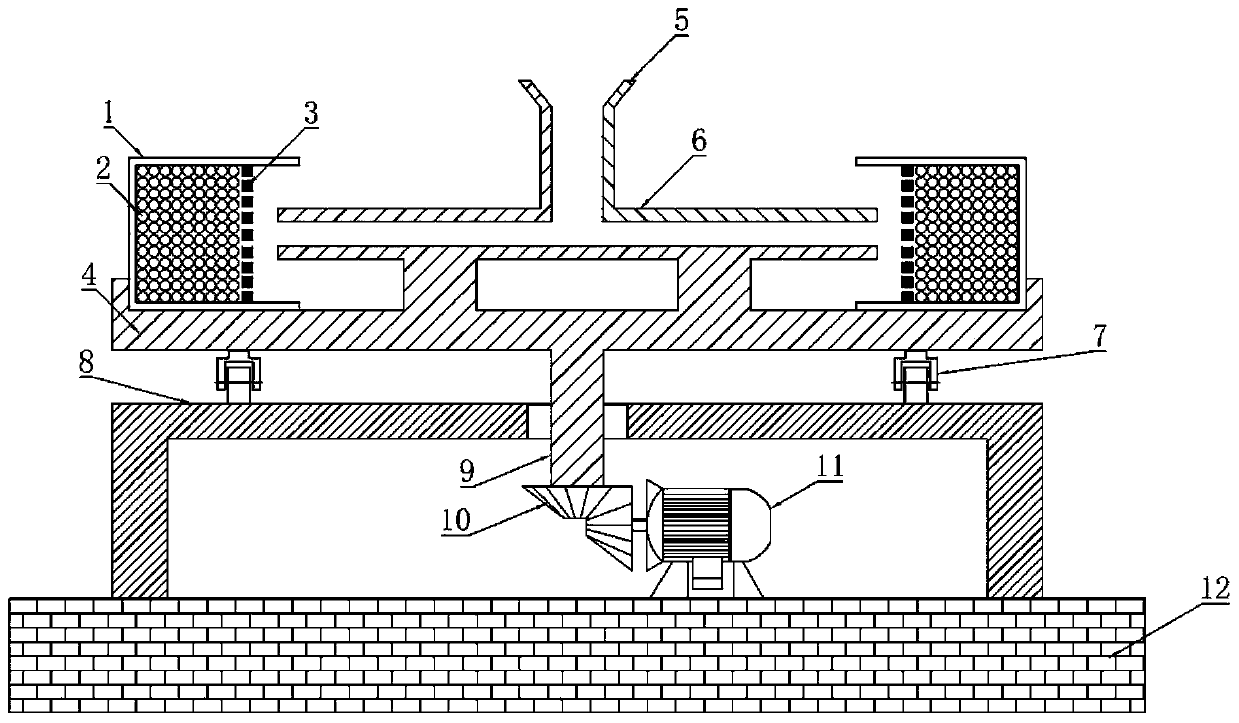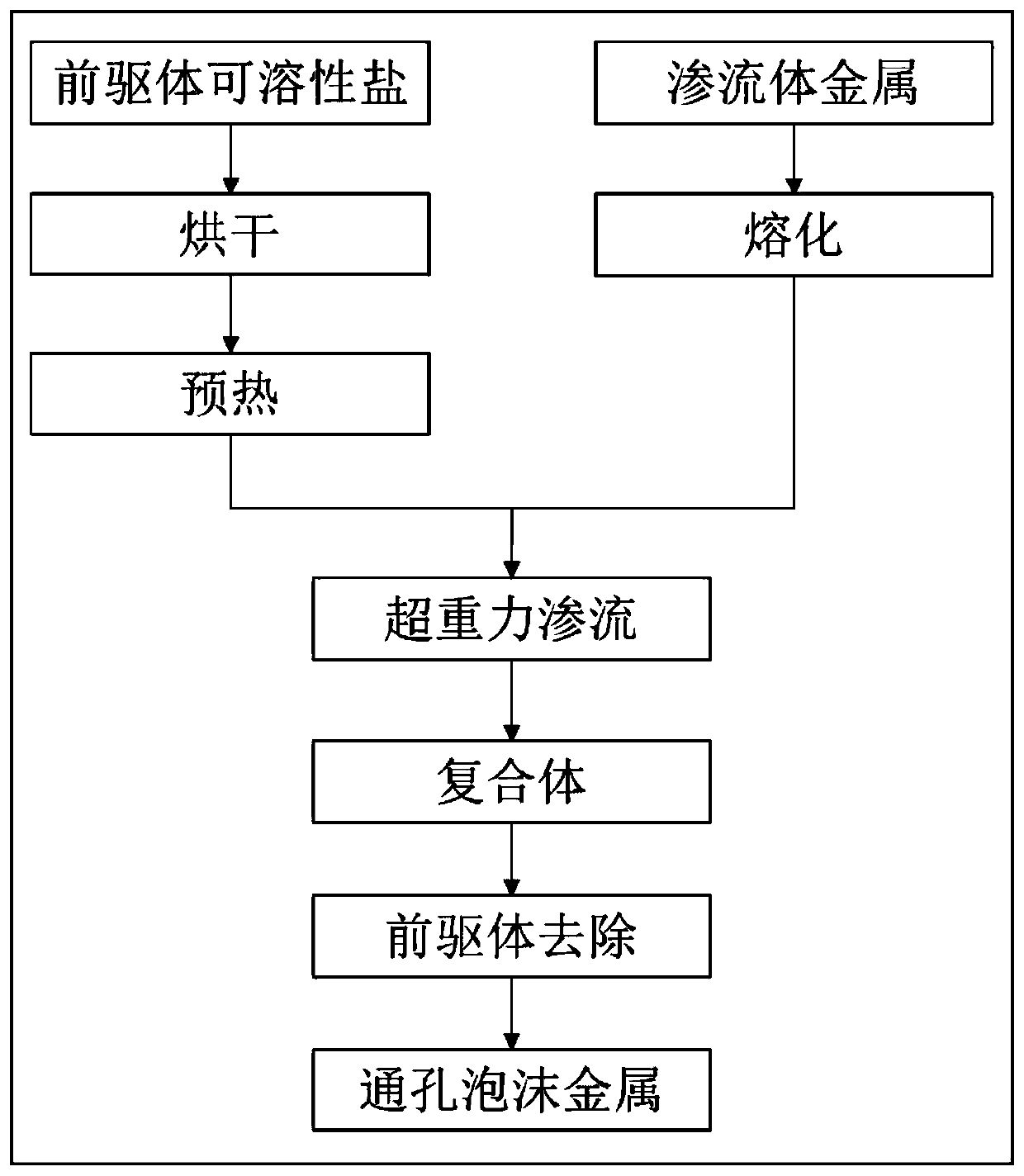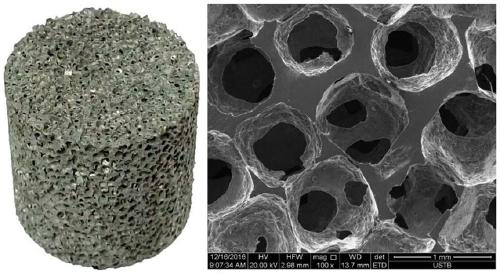A method and device for preparing through-hole metal foam by supergravity seepage
A foam metal and supergravity technology, which is applied in the field of foam metal materials, can solve the problems of difficult operation, difficult removal of gypsum, excessive seepage, etc., and achieves the effects of excellent mechanical properties, maintaining product shape and uniform structure.
- Summary
- Abstract
- Description
- Claims
- Application Information
AI Technical Summary
Problems solved by technology
Method used
Image
Examples
Embodiment 1
[0025] Sodium chloride particles with a weight of 110 kg and an average particle size of 1 mm are respectively packed into two cubic centrifugal molds with a length, width and height of 0.5 m, and a commercially available porous ceramic plate with a thickness of 5 mm is fixed on the top, and the centrifugal The mold is preheated to 500°C;
[0026] Melt the Al6061 aluminum alloy weighing 190kg and keep the temperature at about 750°C;
[0027] Then install and fix the two centrifugal casting molds symmetrically on a centrifugal platform with a diameter of 2m, turn on the centrifugal equipment, adjust the rotation speed so that the supergravity coefficient of the precursor reaches more than 50, and then pour the aluminum alloy liquid into the hopper of the centrifugal equipment, and the aluminum alloy Under the action of centrifugal pressure, the liquid passes through the feeding tube and penetrates into the gap of the precursor through the porous ceramic plate. After centrifugin...
Embodiment 2
[0030] Put sodium sulfate particles with a weight of 140kg and an average particle size of 0.2mm into four cuboid centrifugal casting molds with a width and height of 0.5×0.5×0.7m, and place a layer of 2mm-thick porous stainless steel plate on the top, and use an electric furnace to separate the centrifuge The mold is preheated to about 600°C;
[0031] Melt ZA-8 zinc alloy weighing 400kg and keep it at about 580°C;
[0032] After that, the four centrifugal casting molds were symmetrically installed and fixed on the centrifugal platform with a diameter of 2m, the centrifugal equipment was turned on and the rotating speed was adjusted to make the supergravity coefficient of the porous plate reach more than 180, and then the zinc alloy liquid was poured into the hopper of the centrifugal equipment, and the zinc alloy Under the action of centrifugal pressure, the liquid passes through the feeding tube and penetrates into the gap of the precursor through the porous stainless steel ...
PUM
| Property | Measurement | Unit |
|---|---|---|
| particle diameter | aaaaa | aaaaa |
| thickness | aaaaa | aaaaa |
Abstract
Description
Claims
Application Information
 Login to View More
Login to View More - R&D
- Intellectual Property
- Life Sciences
- Materials
- Tech Scout
- Unparalleled Data Quality
- Higher Quality Content
- 60% Fewer Hallucinations
Browse by: Latest US Patents, China's latest patents, Technical Efficacy Thesaurus, Application Domain, Technology Topic, Popular Technical Reports.
© 2025 PatSnap. All rights reserved.Legal|Privacy policy|Modern Slavery Act Transparency Statement|Sitemap|About US| Contact US: help@patsnap.com



